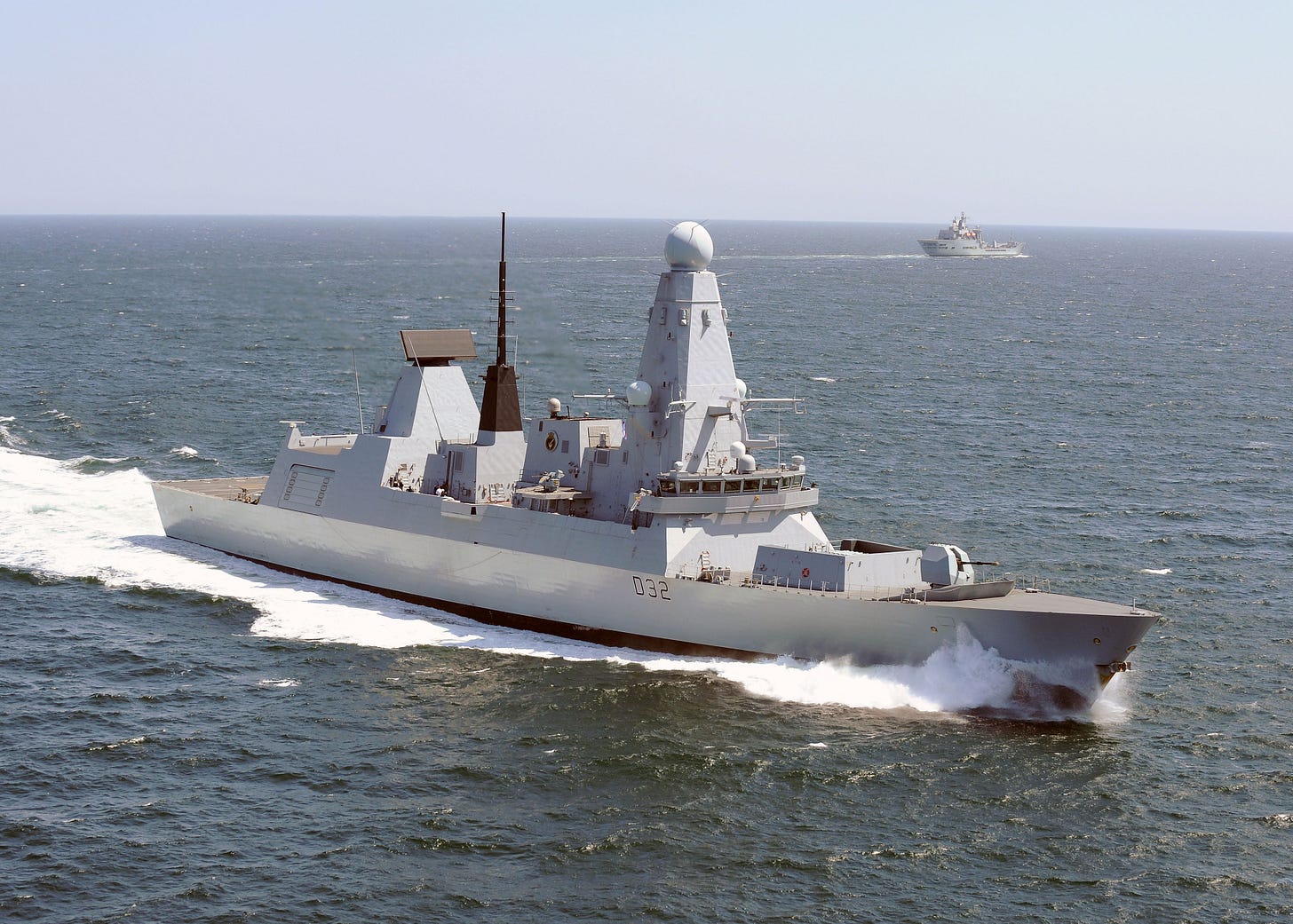'US Navy, Royal Navy Resume Anti-Slavery Patrols, Piracy Eradication In The Red Sea'
A headline I'd like to see

To quote Tara Ferrier, a character in Simon Edge’s latest novel In the Beginning, on the topic of Yemen’s civil war, “don’t trust anyone who tells you this is a simple conflict with virtue on one side and evil on the other. It’s way more complicated than that, and only a fool would claim to understand it perfectly.” Edge was not writing about the current Red Sea patrols or strikes this week on Houthis, but his journalist-character is right about Yemen. A complex series of civil wars has been underway in that country since 1948. Intervention to decisively end the conflict never drew any real interest from the larger world — with three important exceptions, first Egypt, then Saudi Arabia with an assist from the UAE, and of course Iran, which supports the Houthis as a proxy. Suffering and starvation, both self-inflicted, created much concern abroad, but no solutions. Even after Houthis reinstituted slavery, the world was content to leave Yemenis alone in their endless spiral of violence. Both Egypt and the Saudis refer to their adventures in Yemen as a national “Vietnam.” Since 2015, American-led action has focused on Al Qaeda’s presence in the country. No one is interested in “fixing” Yemen.
However, Yemen also sits on one side of the Bab-el-Mandeb, the southern end of the Red Sea. An Iran-backed terrorist group bent on disrupting the global economy is well-sited, there. Spasms of indignation from the Briahna Joy Gray generation notwithstanding, stamping out pirates, terrorists, and other armed threats to busy global shipping lanes is the original purpose of the US Navy and the Royal Navy. Their cooperation is a deterrence strategy for potential enemies who might disrupt global supply chains as acts of war. “Freedom of the seas” was in fact the ostensible reason that the United States declared war in 1917. Both the US and the UK take their freedom of navigation seriously enough to enforce it in faraway waters with expensive navies precisely because the benefits of free global trade are so great. Most of the people in the world enjoying the benefits of maritime freedom right now are in fact free riders on the American and British taxpayer.
Yemen is complex, embroiled in a complex conflict; learning to fight a drone-armed combatant is even more complex. As the Israelis are learning now, there is a difference between seeing a drone war in Ukraine and fighting a drone war in Gaza. The same thing is happening in Yemen. Some things are old-school SEAD (suppression of enemy air defenses): strike the Houthi radars, especially the shore radars used to target ships, suppress any air defenses relentlessly, and target munitions and launchers whenever you find them. This is a process that cannot be completed in a single salvo, but more to the point, there is a period of adjustment to a new kind of battle, and strategies will evolve. Houthis are bound to start using human shields to create more collateral civilian casualties, for example. Attempted boardings, missile attacks, and drone attacks will surely happen again. History suggests that the most effective technologies deployed in any Red Sea conflict are not even kinetic, though. Operation Prosperity Guardian has the worst punk band name ever, but the two major navies involved enjoy a lopsided electromagnetic advantage that will be key to success against the Houthis; commercial maritime operators will want to take notes.


